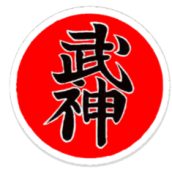My name is Glenn Manry and I am the instructor at the Sheridan Bujinkan Dojo. I have been studying the Bujinkan school since 1999, receiving my teaching license in 2015 when I was given the rank of godan (5th dan black belt). I formally established the dojo later in that year, but ran a small training group off and on by permission of my teachers, since 2003.
In the last few years, I was introduced to a different way to do this art. This method, while seeming similar on the surface, has a depth to it that I was unaware of previously. I have spent the last five years (of direct experience) working on this new direction. It is not a new direction for the art, just for me. This has required a complete re-working of my fundamentals and the techiques that come out of that foundation. It has been quite the journey so far, and I am fortunate to have been allowed to follow this path.
My teaching philosophy is based on the classical Shu Ha Ri, which maps out three levels of learning. Shu is the first and most crucial level. It involves the learning of the fundamentals, known as kihon (基本), and the inner components of the fundamentals, known as Kisso (基礎)...



